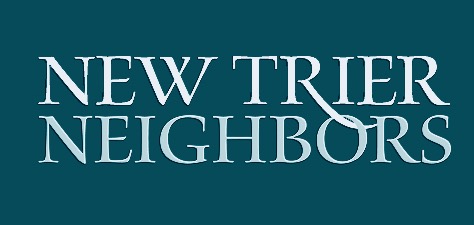The latest issue of the student-produced NT Examiner took on the serious topics of sexual assault in its May 3 issue titled, “Trigger Warning.” The NT Examiner is distributed quarterly by New Trier News, the student newspaper of New Trier High School.
Sexual assault is a serious issue deserving of a thoughtful and robust discussion. Unfortunately, New Trier teachers and administrators overseeing the NT Examiner failed their students by allowing one-sided, ideological views of complicated issues to be the lone voices covered by the paper’s contributors. Articles included, for instance, “How Do We Define Toxic Masculinity”? and “Roe v. Wade Under Siege Post-Kennedy.”
Of particular concern is the recent screening in all New Trier senior advisories of the controversial movie, The Hunting Ground, produced in 2015 by sexual assault awareness advocates Amy Ziering and Kirby Dick; the film was, ironically, funded and distributed by Harvey Weinstein’s production company.
According to an article in “Trigger Warning,” New Trier Assistant Superintendent Tim Hayes explained “The purpose [of screening] The Hunting Ground is to help educate students about sexual assault on campuses before they go off to college.” This is the second year the film was screened to seniors.
But Emily Yoffe in liberal-leaning slate.com writes this about The Hunting Ground: “Because the stakes are so high, it is crucial, in telling stories of sexual assault, not to be blinded by advocacy, but to fairly examine the assertions of both sides. Despite the assurances of the filmmakers, The Hunting Ground fails in this regard.” Read the full slate.com story here as well as coverage from NPR.com and Reason.com.
Notably absent in “Trigger Warning” is any discussion of campus rape stories found to be discredited (Duke, University of Virginia), or of the fact that the Title IX courts, which typically rule in lieu of law enforcement in these matters on college campuses, have often compromised due process for the accused, and ruined students’ futures based solely on unproven accusations. (See one example here.) Many observers agree that this situation infantilizes women and that without respect for the rule of law, women will be left more vulnerable, not more empowered. Also, parents of young sons on campus have much to fear if their sons can be expelled simply on one person’s uncorroborated statement.
New Trier can do better. Why did New Trier allow such advocacy-based coverage of such an important topic? Where is the adult administrative oversight that should be training future journalists to go beneath the surface of an issue, and ask the tough, uncomfortable, and unexpected questions? And what can you do as a parent/friend/taxpayer of New Trier?
1.) Call New Trier and ask for a copy of “Trigger Warning” so you can read it yourself. We have posted a .pdf here until the online versions of the article become available. Fair warning – the font is small so take your time in scanning through.
2.) Talk to your student about the articles. What did the reporting miss, and what could have improved the treatment of this very serious topic?
3.) Write to the school to demand better editorial oversight of this publication. School board policy – and basic journalistic integrity – requires that when addressing controversial topics it is done with balance and a sense of inquiry, not advocacy. If the school listens, it will make for a stronger publication.
